Macro Calculator
This free, easy-to-use macro calculator gives you your optimal macronutrients and calories. It’s a weight loss or muscle gain calculator for both women and men.
Combine with macro counting or flexible dieting to reach your goals faster.
How to get leaner and stronger?
Our comprehensive macro-based fat loss program shows you how. Learn more
How do macros work?
The foods we eat are made up of three macros (macronutrients). These are carbohydrates (carbs), protein, and fat.
Chicken is high in protein but has no carbs; rice is high in carbs but has very little fat or protein. The three macronutrients provide the body with energy and raw materials for growth and repair.
By calculating the appropriate daily calorie amount for you, we can then break this down into the best macronutrient ratios to achieve weight loss.
Basic steps for macro counting
- Enter details into the calculator
Make sure to choose the correct goal. - Take note of your calories and macros
These will be the targets you are aiming for each day. - Track your macros
Use an app or pre-plan your meals. - Measure results
Don’t use basic weight scales.
Use proper body composition scales (we recommend Renpho) to measure fat and muscle mass changes.
What is a good macro ratio for fat loss or muscle gain?
Your macros should be based on your Total Daily Energy Expenditure (TDEE) and goals.
The calculator defaults to the best macro ratio proven to work for most people.
This ratio is:
- 30% fat
- Protein is 0.65 grams per pound of body weight,
- The remainder is carbs.
Depending on your goal, this will be either a calorie deficit or a surplus.
You can go further and make more adjustments: Perhaps you’re an extreme endomorph and do better with fewer carbs. Or perhaps you have one kidney and need to eat less protein.
You can fine-tune your results with a bit of math. See how to change your macros here.
What is a good protein ratio?
Rather than a percentage, proteins are based on your body weight. Our calculator has three settings:
- Moderate adjusts the ratio to 0.65 grams per pound of body weight.
This is appropriate for sedentary individuals or people with higher body fat percentages. - High is for active people with moderate strength training and an average body fat percentage.
- Maximum will set the ratio to 1 gram per pound.
This amount is good for bodybuilding and gaining muscle mass. You must be doing intense training.
Find out how to fine-tune your protein ratios when counting macros
Fat macro ratio
Set fat at 30% of daily energy expenditure.
Most people do very well with this amount of fat. See more about choosing the best macro fats. Because of high-fat diets like keto, many people are now eating more fat than they need to.
Carbohydrate macro ratio
Once you’ve calculated protein and fat, the remainder of your daily calories should be from carbohydrates.
Carbs fuel your body and workouts – and are the body’s preferred energy source.
If you are coming from a low-carb background, this may seem high. However, according to respected nutritional research, this is a moderate amount of carbs.
If you are eating according to your TDEE, the notion that carbs cause weight gain or stop fat loss is incorrect.
Using as a Calorie Deficit Calculator
As a weight loss calculator, this tool establishes a safe calorie deficit only.
The Lose option puts you in a 20% calorie deficit, promoting safe, steady weight loss.
The best macro ratio for body recomposition
If you want to recompose your body (lose fat and gain muscle simultaneously), then use the body recomposition calculator.
Macro ratio for maintenance
The Maintain button shows you the macro levels to maintain your current weight.
This is great if you have lost weight and don’t want to gain it back.
Macro ratio for muscle gain
The Gain button puts you in a 20% calorie surplus.
The macro breakdown is designed to build muscle fast in conjunction and must be combined with a comprehensive weight training program.
Underweight people can also use it.
TIP: Try starting with the maintenance goal and gradually increasing calories if you want lean muscle gains.
Calculating macros using your body fat percentage
The calculator uses your body weight to determine calories and macros.
However, you can obtain superior results by using your body fat percentage. The calculator allows you to choose which method: Normal for body weight, Lean Mass for fat percentage.
When to choose the Lean Mass Formula
If you are lean (have a low body fat percentage), choose the Lean Mass formula and enter your body fat %.
If you are classified as obese and have a lot of weight to lose, the lean mass formula is superior. You can read more about macro counting and obesity.
Help? Calculate your ideal body weight or get an assessment of your body fat percentage.
Why the difference? Muscle cells burn more calories than fat cells, so the more accurately we measure this, the better your results will be.
How to calculate macros per meal
You can break this down into meals once you’ve calculated your daily macros in the calculator.
Choose from 2 to 6 meals daily to see the macro ratio you can track for each meal. For some people, this is easier, but for others, this is too much detail.
Do what works for you.
Meal Plans
See a 5-day macro-based meal plan. It includes three meals and two snacks per day.
Macro calculator activity level settings
A higher activity level means a higher daily calorie goal.
For example – if you maintain your weight at 2,000 calories per day, adding vigorous daily exercise means you need more calories to maintain your weight.
If you are sedentary and trying to lose weight, adding exercise will increase your daily calorie goal.
The idea seems counter-intuitive, but more energy is required to fuel your workouts. More workouts lead to increasing metabolism; therefore, more fat is burned!
Undereating is one of the leading causes of the weight loss plateau.
So many of our clients previously “hit the wall” with dieting. They would continually reduce calories, stop losing fat, and gain weight when they eat a little more.
Macro counting defeats this by prescribing the right food and calorie levels.
Which activity level do I choose?
- Sedentary: Just regular everyday activity like a bit of walking, a couple of flights of stairs, eating, etc.
- Light: Any activity that burns 200-400 calories (females) or 250-500 calories (males) over your sedentary amount.
- Moderate: Any activity that burns 400-650 calories (females) or 500-800 calories (males) more than your sedentary amount.
- Extreme: Any activity that burns more than 650 calories (females) or more than 800 calories (males) in addition to your sedentary amount.
Other options for determining your calorie burn
- Use our calories burned calculator – it accurately assesses over 380 activities.
- Use a fitness tracker – like a Fitbit or Apple Watch (note that they can overestimate calorie burn).
- Use a suitable app – like MapMyFitness
Why should I eat more when I exercise more?
High physical activity not fueled with enough calories will lead to muscle catabolism (breakdown of muscle fiber).
This lack of nutrition could stall your weight loss, so eat up if you love to exercise!
I’ve got my macros – now what?
Once you’ve identified your target daily macros, you must determine the macros in all your foods.
By tracking them daily, you can reach your recommended macro targets that encourage fat loss, muscle gain, or whatever your goal may be.
You can learn more about the macro counting system and the flexible dieting philosophy. Many people use an app like Myfitnesspal to track macros.
For more specifics on what to eat – see a sample macro meal plan or a list of macros for familiar foods.
View article sourcesSources
- Mifflin, M. D., St Jeor, S. T., Hill, L. A., Scott, B. J., Daugherty, S. A., & Koh, Y. O. (1990). A new predictive equation for resting energy expenditure in healthy individuals. The American Journal of Clinical Nutrition, 51 (2), 241-247. Link
- McArdle, W. D., Katch, F. I., & Katch, V. L. (2010). Exercise physiology: nutrition, energy, and human performance. Lippincott Williams & Wilkins. Link
- Jequier, E. (1994). Carbohydrates as a source of energy. The American journal of clinical nutrition, 59(3), 682S-685S.
- Lemon, P. W., Tarnopolsky, M. A., MacDougall, J. D., & Atkinson, S. A. (1992). Protein requirements and muscle mass/strength changes during intensive training in novice bodybuilders. Journal of Applied Physiology, 73(2), 767-775. study abstract link
- Grundy, S. M. (1999). The optimal ratio of fat-to-carbohydrate in the diet. Annual review of nutrition, 19(1), 325-341. abstract
- Conlin, L.A., Aguilar, D.T., Rogers, G.E. et al. Flexible vs. rigid dieting in resistance-trained individuals seeking to optimize their physiques: A randomized controlled trial. J Int Soc Sports Nutr 18, 52 (2021). https://doi.org/10.1186/s12970-021-00452-2
2,104 Comments


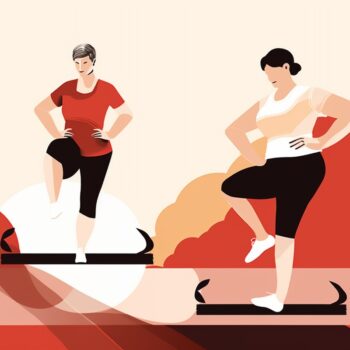 Menopause Macro Calculator
Menopause Macro Calculator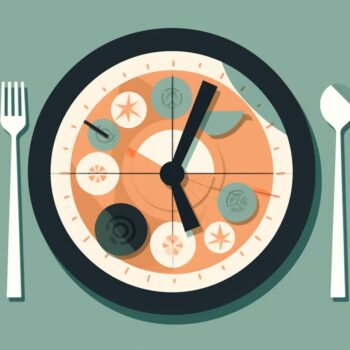 Intermittent Fasting Calculator
Intermittent Fasting Calculator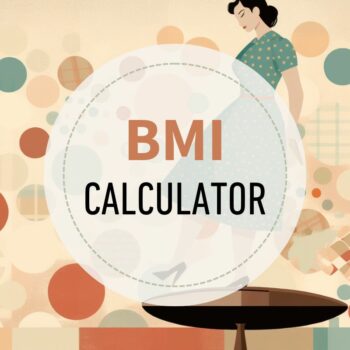 BMI Calculator
BMI Calculator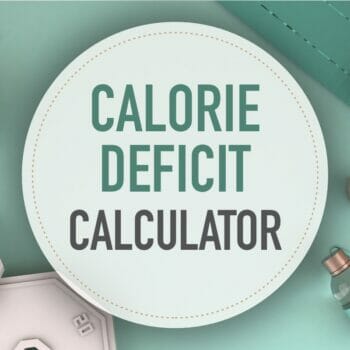 Calorie Deficit Calculator
Calorie Deficit Calculator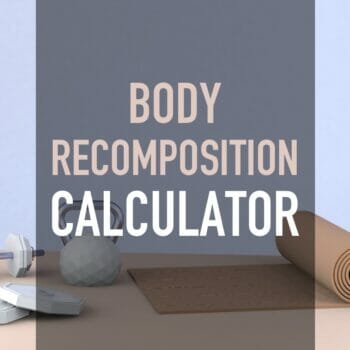 Body Recomposition Calculator
Body Recomposition Calculator
You hear a lot of eat 1200 cal for losing weight but with these calculator it’s saying lose weight with 1600. I’m a girl who is 5″2 and wights 153. Could the calculator be skewed bc of this? I’m lifting weights 4-5 times a week. Just trying to figure out the accuracy for me. Also if it is accurate will I gain weight before I lose it until my body figures out what’s going on?
If you are lifting 4-5 times per week you need to eat to 1) recover from lifting sessions and 2) build muscle to get stronger. Eating 1200 calories a day is an old school thing that people used to say because some study at some point said that was the minimum amount of calories you needed to eat to survive (without exercise). If you were to eat this little you would starve your body. Sure you might see weight loss but as so as you reach your goal (if you ever do cuz you’re likely to feel so hungry that you give up) you will gain it all back and probably more. Weight loss is a process. It takes time. And eating enough food (sometimes more than you think you need) is necessary for long lasting sustainable weight loss.
Great advice Megan! And I second that. you have to eat according to your personal TDEE with a safe calorie deficit factored in not an arbitrary number like 1200 calories.
Hi Ted! I’ve been using this calculator for a few months first to lose a few pounds and now to maintain weight. I set everything to “normal” It was very surprising to see how much excess carbs and fats I was eating and how little protein I was eating! But what’s great news is I was never hungry as long as I followed the calculator, even when i was at a 20% deficit. I am prepping for a meet right now and can’t afford to lose any more weight at the moment. But before, I was losing at a healthy pace of .5 lbs a week on average. After the meet I plan on cutting again and hopefully dropping a weight class (or two depending on how ambitious I am!) for my next meet. Thank you!
Hi Adeline, thanks so much for sharing that! I’m glad our calculator helped you reach your goals and good luck with your up coming meet!
Hi Ted,
I would like to start by saying I have seen great results using this calculator and your advice. Before I was losing weight but also muscle mass, and now I am really starting to see some definition. I am currently 5″11 169 pounds, my macros have been 171 protein, 50g fat, and 161 carbs. I recently switched to the low carb high protein but I have been so hungry!!!!!! I workout probably about 6-7 days a week( 5-6 days of weightlifting) , and I selected the lightly active tab to not over estimate my activity. I am thinking about either going back with my high carb numbers( 171 grams) OR switching to moderately active. I would love your advice!
Thank you!
Great to hear, Dre! EAT THE CARBS! 🙂 and make sure you are eating enough to support your workouts and to support the growth of muscle while still using your fat reserves for extra energy to get more definition. This can be a fine balance but we did add the 10% deficit option for people such as yourself.
Hi – would greatly appreciate your help and guidance! For years when I wanted to lose weight I would just restrict calories and do an hour of cardio 7x a week. Obviously that stopped working over time – I’m naturally very muscular and I have just a few pounds of stubborn belly fat I’m trying to lose.
A bit about me
26 year old female
5’8″
140 pounds
I have a desk job
I do Five 30 minute weigh lifting sessions per week
Cardio program is as follows:
Monday – Run 2 miles
Tuesday – 15 minute HIIT followed by 10 minutes of bike sprints (:15 hard, :45 easy)
Wednesday – Run 2 miles
Thursday – 30 minutes interval training on the elliptical (3 minutes easy, 2 minutes moderate, 1 minute sprint 5x through)
Friday – Run 2 miles
Saturday – 30 minutes interval training on the elliptical (3 minutes easy, 2 minutes moderate, 1 minute sprint 5x through)
I also do Pilates or Yoga on Sundays.
My question for you: what would be appropriate macros to lose that last bit of stubborn belly fat I mentioned? At my lightest weight I’ve been 134 pounds and my heaviest 152. Also, how long should I stick with these macros to determine if they’re working before seeing if I should adjust?
Thank you so much! I’ve tried a bunch of different calculators and they range from 1400 – 1800 to lose the weight I mentioned.
Hi Maddie, flexible dieting is a bit different than the method you tried in the past because it is more individualized and promotes a safe calorie deficit instead of one that can potentially slow down your metabolism. I would love to help you with your macros and get you started in reaching your goal, but you would have to sign up for our flexible dieting coaching package for what you’re asking. Please take a look at what’s included here. https://healthyeater.com/personal-coaching
Hey Ted,
Quick question. I have used the macro calculator for each activity level to determine how much I should be eating based on how much I am burning. I started wearing my HR monitor again so that I can get an accurate calorie burn for my workout. My question is: say I burn 450 calories just doing weights vs. 450 calories just doing cardio, do I eat the same amount (Moderate Activity Macros) for each workout, or would I eat a lower amount for just cardio days? I’m thinking that I eat the same regardless of what activity im doing because calories burned are calories burned but im not sure. let me know! Thanks 🙂
Hi Kristen, Yes you would eat at the same levels for both workouts. All the best!
thanks Ted, I did purchase the e-book plus a couple of weeks ago, but my computer crashed, finally got it back up and running and started to read the book but struggling with the concept of the high calorie intake but will give it a try.
Great! and thank you, but as I said I would customize macros for you that would be a little lower to account for the amount of fat tissue you are dealing with. Since you paid for support, can we shift this conversation to the forum?
Hi Ted, I have the same issue as MC, I am very over weight and looking to lose over 100 lbs, I have gained much of the weight by the typical Yo-Yo dieting, loose 20-30 by starving and then put all the weight back on. I was eating approximately 1300 cals per day, went to an eat 6 times per day diet that was at 2300 cals per day and now with this system I’m supposed to be eating 2558 cals per day according to the macro calculator.
Hi Jason, Flexible dieting teaches you to eat according to what your body needs factoring in body composition and exercise. Since your body composition is a bit skewed because of the fat tissue weight, it can also somewhat skew the calculator results. For people such as yourself, I always advise a custom set of macros. I’m happy to do this for you as part of the coaching package we offer and I’ll be there to guide and support you through the process. I hope you’ll give it some consideration. See this page for more details. https://healthyeater.com/personal-coaching
Hi Ted, I was just wondering if it would be possible to reduce my carbs slightly and increase my fats? I do a lot of exercise but I really struggle to get my carbs in but can easy go over my fats 🙂 I have for 20% deficit 2094 cal 239 c 154 p 58f 🙂
Hi Lauren, you can give it a try, but fats won’t fuel your workouts like carbs will.
Hi, I’ve been struggling back and forth between pursuing a healthy lifestyle( like this) and severely restricting calories for about 2 yrs now. I went through a very stressful time and didn’t eat properly but lost a lot of weight. I was heavy before but now I feel like I’ve totally f’d up my metabolism. I want to find somethin that works for me. I’ve done the healthy and unhealthy way, but I feel like the only way I lose is to basically starve myself (which I know is unhealthy) Right now I try to stay under 1000 cals a day between 600 and 900. When I did the macro calculator it put me at 2360 cals a day! Yikes, I hope you can understand why this scares the hell out of me. I just want to know if I can eat less than this, and the best way to transition. Also I did try eating my recommended calorie intake for weight loss a few months ago and put on almost 20 pounds:( I did not count macros though. Help!
Hi Mc, It sound like you’re in a vicious cycle. Excess fat weight can skew calculator results so this may explain the high-calorie amount here and what you were eating before and gained the 20 pounds. I do know that you need to eat more than you are because you are definitely slowing down your metabolism eating such low amounts for such an extended period of time. Give this article a read ( https://healthyeater.com/eat-to-lose-weight ) and if you consider letting me coach you, I can work your numbers for you and account for your unique needs.
Hi Ted,
I was wondering if you could answer my question. I am currently following a carb cycling type iifym diet and my macros are pretty spot on with your calculator on here. My question is, do you think that a lack of proper sleep would affect my progress? I am currently doing alright on my diet, not really losing lbs off the scale but I have lost a few inches here and there in the last 5.5 months. I am however an accelerated BSN student (nursing) and have not been able to get more than 5.5-6 hours of sleep most nights since September. Sometimes it’s more and sometimes it’s less. I workout 4-6 days a week and I am usually very on top of my macros. The only thing I can think is that this lack of sleep is affecting my progress. What do you think? Thanks in advance
Hi Kristen, Sleep is an important factor and could be part of the equation for sure. If you are engaged in weight training this can be another factor. Are you cutting back your macros to sedentary levels on your rest days?
Yes I am. I am trying to only keep my carbs higher on bigger strength days such as legs and back. The rest of the days I follow a lower carb/rest day macros. I usually weight train 3-4 days a week and cardio 2-3
You should only eat at sedentary macros on a rest day, meaning you aren’t doing any exercise.
I am 35 female trying to loose weight,seems like for ages now I am 5f 8inch tall and 153 I have been struggling on this weight for long time deits only work for short period . I want to see some good results those are permanent .i am a vegetarian but I don’t mind eggs . Nothing seems to work . I am doing 5 days gym and rest 2 days .any suggestions.
Hi R.o, Most diets only work short term because ethe calorie deficit is usually too low which tends to slow the metabolism. Flexible dieting is different so I suggest that you give it a try. If you need help getting started, please see my book. https://healthyeater.com/macro-solution
Thank you for addressing breastfeeding. Just wondering what your thoughts are about carb cycling and having different macros each day. Thanks!
Hi D, I don’t believe in carb cycling per say, but I do believe in the notion of adjusting your macros based on the activity you do. So, this way you would be eating more carbs on workout days than you do on rest days and even more on really big workout days. This just makes sense since your fueling your body based on what activity you do. Make sense?